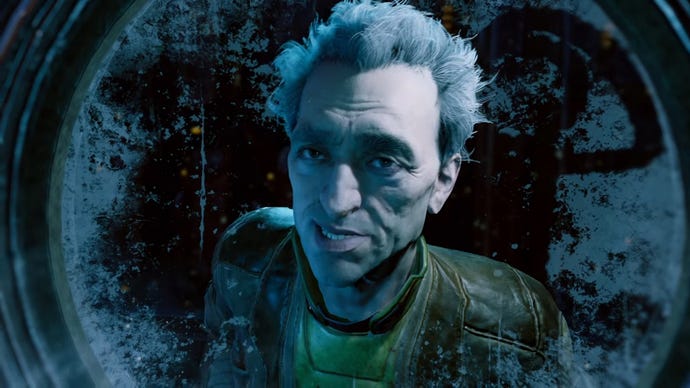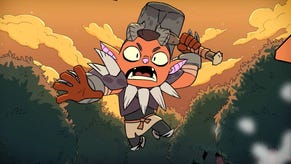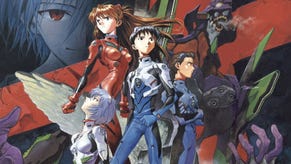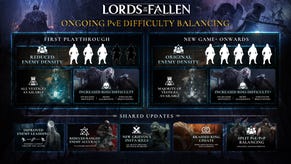The Outer Worlds and Bloodlines 2 share the same magic DNA: Troika Games
When Chris Avellone emerged on an E3 stage last year to announce Dying Light 2, it signified an exciting change in the world of blockbuster games. The RPG nerds who’d long existed in the badlands of triple-A, where the landscape was volatile and work hard to find, were finally inside the castle running the show.
It’s not just Avellone - he’s simply the most visible member of the court. Troika Games, a name whispered reverently among diehard RPG fans, is exerting its influence from beyond the grave. Its former personnel are shaping two of the biggest games of the next year - The Outer Worlds and Vampire: The Masquerade - Bloodlines 2.
The pitch for The Outer Worlds is that you are the “unplanned variable” in a corporate equation, and the same could be said of the three developers who founded Troika: Tim Cain, Leonard Boyarsky, and Jason Anderson. In the mid ‘90s, they worked for Interplay, a powerful but chaotic publisher which overlooked their work on a bizarre post-apocalyptic role-playing game. That lack of oversight would be the making of them. Along with lead designer Chris Taylor, they conceived the S.P.E.C.I.A.L. system, designed the deathclaw, and mapped out the world of Fallout.
With Fallout done and the future of RPGs changed forever, Cain, Boyarsky, and Anderson set up independently. Recognising the creative energy they had in collaboration, they named themselves Troika - after the Russian word for a group of three.
Troika’s worlds felt as if they were alive to the player. In a popular YouTube video of Arcanum, the studio’s steampunk follow-up to Fallout, a player throws a molotov into the centre of a crowded gentleman’s club. Every NPC has a different response: the noble propping up the bar runs screaming for the guards; a dwarven gambler rolls up his sleeves for a fight; the dark elf in the corner simply observes. This reactivity became the studio’s hallmark, and if it had niche appeal then - speaking mainly to RPG veterans who’d grown tired of promises of real consequence in games that forefronted combat - it’s mainstream now.
The Outer Worlds, a big-budget RPG directed by Cain and Boyarsky at Obsidian, makes reactivity the first bullet point in its sell. Your decisions in its sci-fi parody of capitalism will shape the story and its endings, rub up against the ideals of your companions, and mould your character through trauma.
It’s the latter point that feels deeply Troika. The playable clans of Vampire: The Masquerade - Bloodlines, the studio’s best-remembered game, are each defined by terrible, powerful trade-offs. The Brujah are fierce warriors, but rage is a weakness they can’t control. The Malkavians are clinically insane but gifted with strange insights. And the Nosferatu are hideously disfigured, confined to the sewers of Los Angeles - yet their otherness has made them expert sneaks and spymasters.
That tendency towards min-maxing was reflected in the studio itself. While Troika was lauded for its creativity, not one of its three heads appeared to possess a business brain. Under-hiring left the studio in an almost constant state of crunch throughout its seven year existence. And the developer was cursed with bad luck when it came to funding, never working with the same publisher twice.
Both of these factors contributed to a reputation for bugs which, in turn, secured the studio’s demise after Bloodlines - no publisher wants to work with a team that can’t deliver polish. But Troika has attained cult status among fans, who were more than willing to forgive glitches, however game-breaking, to explore deep worlds with the capacity for surprise. In fact a community of modders, led by a chemistry professor Werner Spahl, has spent a decade and a half fixing and restoring aspects of Bloodlines in popular mods.
It’s the torch that still burns for Troika that has enabled Swedish publisher Paradox to put Bloodlines 2 into production, confident that it’ll attract a devoted audience. It says something that the involvement of Bloodlines 1 writer Brian Mitsoda has been enough to assuage worries about a sequel in the hands of a new studio. Mitsoda’s noir instincts and black humour ensured the original game’s script matched its aesthetic darkness, and it’ll define next year’s Seattle-set RPG too.
It’s easy to romanticise the years when Troika was in operation as a kind of double-strength Obsidian - building games that were bold, brilliant, and broken. But really, the situation we find ourselves in today is better than ever. Finally, these designers, artists, and writers are backed by the budgets their ideas deserve, working under publishers of games like Kerbal Space Program and Cities: Skylines - in other words, people who understand the value of long-term support. Troika Games may be dead, but its spirit lives on in the madness of Bloodlines 2’s Malkavians, the min-maxing of The Outer Worlds’ flaw system, and everything that makes tomorrow’s RPGs strange and unique.





.png?width=291&height=164&fit=crop&quality=80&format=jpg&auto=webp)






